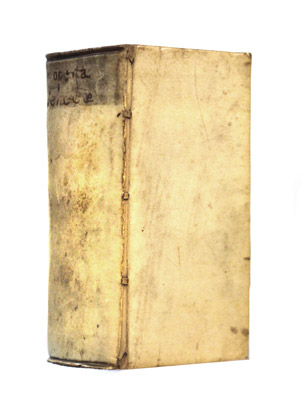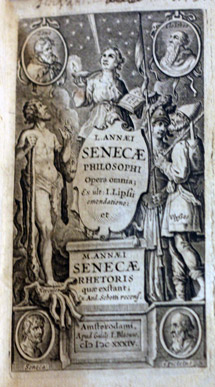All text is in the original Latin.
Lucius Annaeus Seneca (often known simply as Seneca; ca. 4 BC – AD 65) was a Roman Stoic philosopher, statesman, dramatist, and in one work humorist, of the Silver Age of Latin literature. He was tutor and later advisor to emperor Nero. While he was later forced to commit suicide for alleged complicity in the Pisonian conspiracy to assassinate Nero, the last of the Julio-Claudian emperors, he may have been innocent.
Seneca has been tremendously influential as a moral and political philosopher over the past 2000 years.
About the publisher (from wikipedia):
Willem Janszoon Blaeu (1571 – 1638) was a Dutch cartographer, atlas maker and publisher.
Blaeu was born at Uitgeest or Alkmaar. As the son of a well-to-do herring salesman, he was destined to succeed his father in the trade, but his interests lay more in Mathematics and Astronomy. Between 1594 and 1596 as a student of the Danish astronomer Tycho Brahe he qualified as an instrument and globe maker. In 1600 he discovered the second ever variable star now known as P Cygni.
Once he returned to the Netherlands, he made country maps and world globes, and as he possessed his own printing works, he was able to regularly produce country maps in an atlas format, some of which appeared in the Atlas Novus published in 1635. In 1633 he was appointed map-maker of the Dutch East India Company. He was also an editor and published works of Willebrord Snell, Descartes, Adriaan Metius, Roemer Visscher, Gerhard Johann Vossius, Barlaeus, Hugo Grotius, Vondel and the historian and poet Pieter Corneliszoon Hooft. He died in Amsterdam.
He had two sons, Johannes and Cornelis Blaeu, who continued their father’s mapmaking and publishing business after his death in 1638. Prints of the family’s works are still sold today. Original maps are rare collector items.



